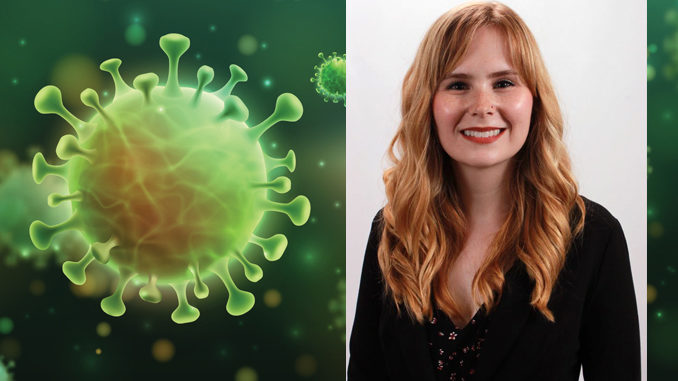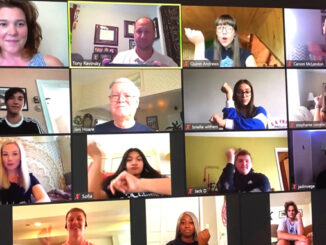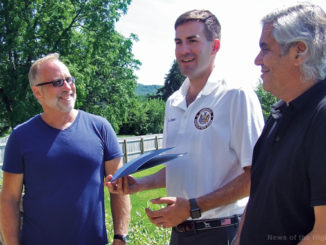
How millenials make their decision is her area of interest
Although there is currently no cure for COVID-19, nor a vaccine to prevent contracting the Coronavirus, knowing how rapidly the disease has spread, would anti-vaccinators reject any medical breakthrough which would protect their child?
Katie Henaghan, a 2012 Cornwall High School graduate and a first-year student pursuing her masters in Public Health, is exploring the factors which influence whether or not millennial parents decide to have their children vaccinated.
Henaghan graduated from George Washington University, in 2016, with a bachelor’s degree in international affairs and a concentration in global health. She has been working for Chemonics International in their global health department and recently found herself ready to be promoted from associate to manager. Unfortunately, her competition holds master’s degrees. Taking the advice of others, Henaghan opted to put her life on hold and obtain her degree. In the fall, she enrolled in the Rollins School of Public Health at Emory University in Atlanta, Ga.
As part of her qualitative research methods class, Henaghan is required to conduct a mini-study on a health topic of her choice. It was around the time of the measles outbreak in Rockland County that Henaghan decided to focus on vaccinations, a topic she found to be interesting and one she had researched previously in another class.
When deciding on her focus group, she considered interviewing nurses who are against vaccinations, but opted to focus on millennials, because of the limited data available.
The original plan was to interview only single parents, who live in Cornwall and were born between 1981 and 1996, but when she posted, on Facebook, her request for participants, she found it difficult to find three single people. Based on the response and her teacher’s recommendation, Henaghan quickly changed her focus to married people.
“In the end I’m hoping to have more information on how families make decisions for their children. Especially in an age where the internet seems to think it has the answers for everything.”
Katie Henaghan
Henaghan was surprised by the responses she received, but had found it difficult to conduct interviews over Facebook since she’s still in Georgia. She believes the site is flagging her messages and they’re not being seen by the recipient.
To date, she’s interviewed one person and was preparing to send a questionnaire to a second participant. She’s still seeking a third as required by the parameters of the study.
Henaghan’s 15-question interview starts off with some general questions about what the subject believes is an ideal family environment and their thoughts on vaccinations in general. She then transitions into the recent measles outbreak and questions whether they to okay any precautions, how that made them feel, and their thoughts on vaccination safety. The questions then get a bit more specific inquiring about making healthcare decisions for their children and where they got the information from to make that decision.
The last two questions ask if the subject and their partner agree on their viewpoint regarding vaccinations and if they consulted with each other.
Heading into the interview phase of her project, Henaghan originally hypothesized single parents would likely feel more supported in their decision if they have someone to bounce ideas off of, whereas those without a partner in the picture would likely side with whatever the doctor recommended. When her test subjects changed, Henaghan had to scrap her original hypothesis and has yet to come up with another one. She said the project doesn’t require her to draw conclusions or have the results fit into a hypothesis.
Henaghan’s goal is to have a different array of opinions from parents who agree on vaccinations to those who may disagree.
“In the end I’m hoping to have more information on how families make decisions for their children,” she said. “Especially in an age where the internet seems to think it has the answers for everything.”



